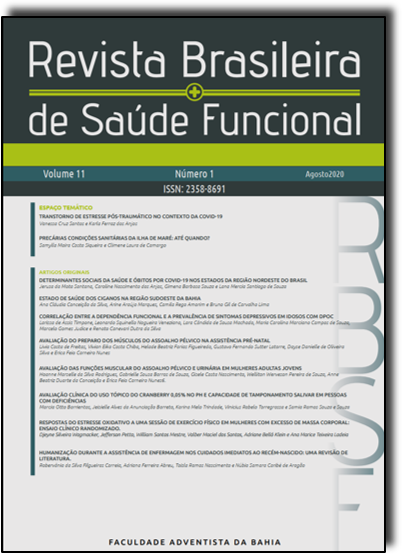HEALTH STATUS OF THE GYPSIES IN THE SOUTHWEST REGION OF BAHIA
DOI:
https://doi.org/10.25194/rebrasf.v8i2.1306Abstract
Introduction: Gypsy people constitute a traditional community and have singularities of values, habits, and traditions. In this context, the health-disease binomial is unequally present among the specific population groups, in a multifactorial relation that impacts on health status.
Objective: To describe the health status of gypsy population of the municipalities of Itagibá, Barra do Rocha and Ubatã, in the Southwest of Bahia.
Methodology: A descriptive, exploratory, cross-sectional study. It is a snippet of the Multicenter Project entitled “Health conditions of gypsy population in Bahia, Brazil.” Study population 1285 individuals aged ≥ 12 years old. The random sample consisted of 461 individuals. Stratified sample proportional: 27 individuals. Available sample: 17 individuals. Field of study (Southwest Region of Bahia): municipalities of Itagibá, Barra do Rocha and Ubatã. Data collection instrument: sociodemographic, occupational and health data. Absolute and relative frequencies of the variables were estimated. Analysis and processing of data by SPSS program. Version 14.0.
Results: Self-reported health status ranging between “good” and “very good”. Predominantly female population (76,5%), married (58,8%), catholic, with low level of education, resident in urban areas, and low-income. The affected systems included urinary tract, gastrointestinal, respiratory, cardiovascular.
Conclusion: Self-reported health status “good”, reporting the absence of most diseases and when present, in small proportion of individuals. It is emphasized the importance of unveiling the health situation as a guiding element of health actions for people and traditional communities.


